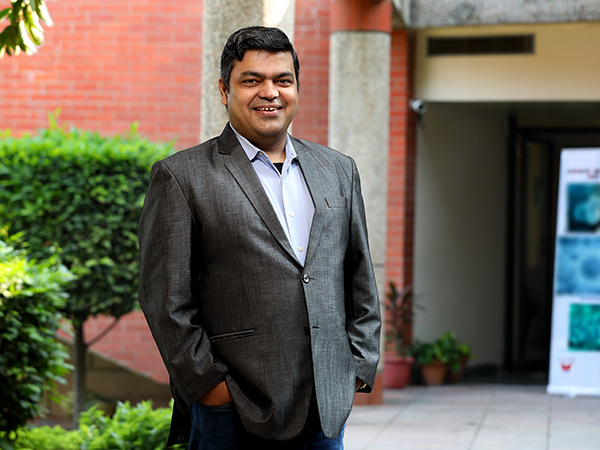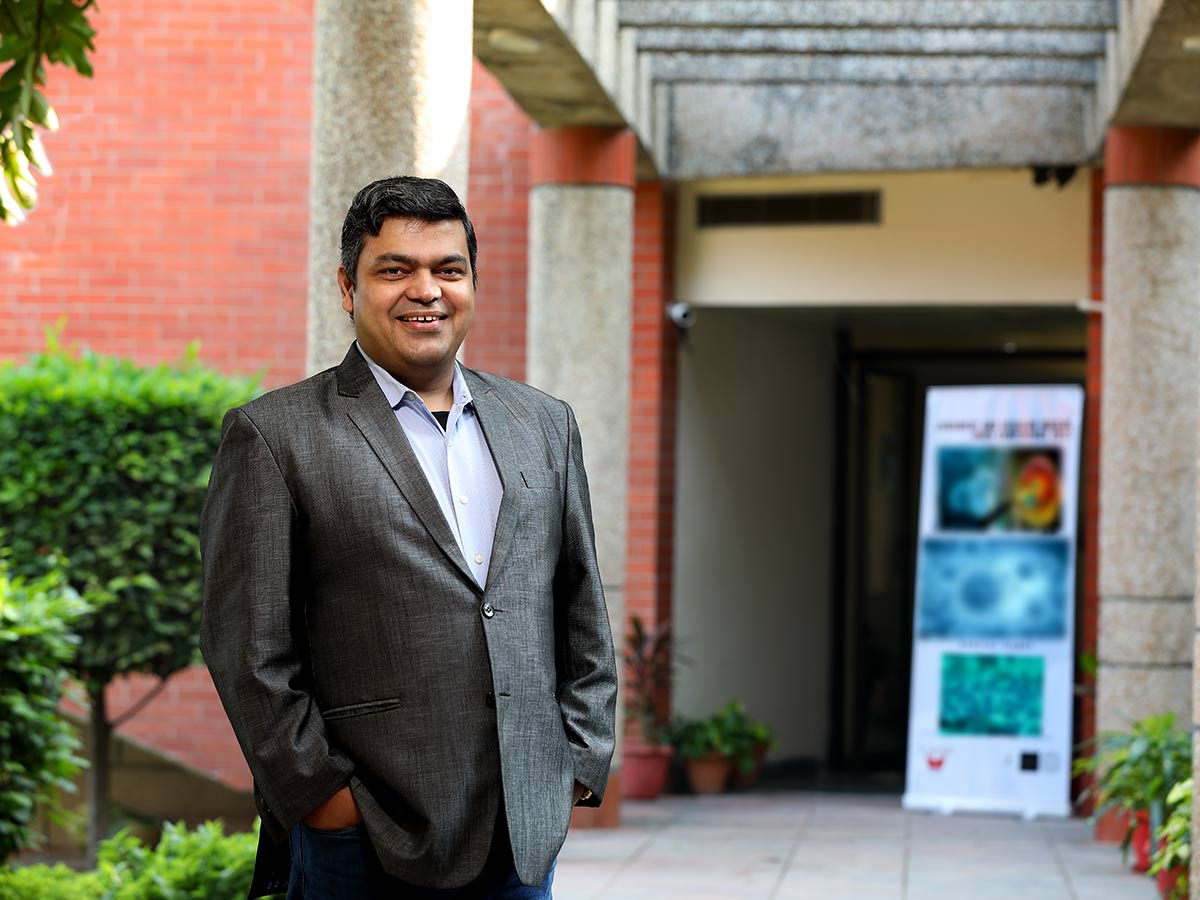The Infosys Prize 2023 in Life Sciences is awarded to Prof. Arun Kumar Shukla for his outstanding contributions to the biology of G-protein coupled receptors (GPCRs), a key component of cell function. His studies have elegantly illustrated mechanisms that selectively activate signaling pathways downstream of GPCRs. These and other discoveries provide fundamental understanding of the context-dependent functions of GPCRs and suggest a new framework for the design of novel therapeutics.
Infographic:
Designing safer medicines for all
Scope and Impact of Work
The overarching theme of Prof. Arun Shukla’s research is to understand the structure, function and regulation of G-protein coupled receptors (GPCRs), a fundamental component of cellular function. Cells—the basic architectural unit of our tissues and organs—communicate with each other to change their size, shape, and function. Misregulation of cell-cell signaling can result in developmental defects, cancers, heart diseases, and brain disorders. A crucial mechanism of signaling is through GPCRs, which are intricately involved in almost every physiological process in our body. Approximately half of currently prescribed medicines exert their therapeutic effects through these receptors, including therapeutics prescribed for hypertension, heart diseases and neurological disorders. Prof. Shukla’s work has demonstrated that selectively engaging one of two major pathways downstream of GPCRs using specific activators, or agonists, may help minimize the side effects of commonly prescribed medicines. The concept of biased agonists that can direct GPCR signaling can also be harnessed to develop drugs for many human diseases.
Arun Kumar Shukla has established a platform for synthetic antibody technology and successfully employed it to design sensors to probe GPCR activation, as well as modulators to control GPCR trafficking and signaling. These tools have far-reaching implications for illuminating novel aspects of GPCR biology. A central aspect of his research program is to understand the structural biology of membrane proteins such as GPCRs and their signaling complexes. His advocacy and leadership have led to the establishment of national facilities for cryo-electron microscopy, a technology that is vital for the progress of fundamental science in India.
Bio
Arun Kumar Shukla is Professor in the Department of Biological Sciences and Bioengineering at IIT- Kanpur. He completed his B.Sc. from Gorakhpur University, his M.Sc. from Jawaharlal Nehru University in New Delhi and his Ph.D. at the Max Planck Institute of Biophysics in Frankfurt, Germany. Prof. Shukla was a Research Associate and Assistant Professor at Duke University, North Carolina before joining the Indian Institute of Technology, Kanpur as an Assistant Professor in 2014. Prof. Arun Kumar Shukla is a Fellow of the Indian Academy of Sciences and the Indian National Science Academy. He is a recipient of many honors, notably the Shanti Swarup Bhatnagar Prize and a Senior Fellowship of the DBT Wellcome Trust India Alliance. In addition to his scientific leadership, as evident in his team’s outstanding record of publications, he is a strong advocate for fundamental science and a committed mentor for Ph.D. students and other trainees.
Timeline
Jury Citation
Prof. Arun Shukla has made far-reaching contributions to our understanding of G-protein coupled receptors, with a focus on understanding their activation, signaling and regulation. GPCRs are one of the most important classes of drug targets. Prof. Shukla’s research has refined the conceptual framework of pathway-selective activation in GPCRs. His group has discovered a novel GPCR signaling mechanism demonstrating that even partially engaged receptor-effector complexes can mediate downstream signaling. This discovery challenges the longstanding notion in the field of GPCR biology that complete engagement of signaling effectors with GPCRs is a prerequisite for their functions. His laboratory has shown that even a single change on a GPCR can make a decisive contribution to its coupling with other proteins and its activation. His group has provided the GPCR community with important research tools that demonstrate the feasibility of skewing GPCR signaling in desired directions.

Arun Kumar Shukla
On behalf of the jury, I congratulate you on receiving the Infosys Prize 2023 in Life Sciences. Your groundbreaking work on G-protein coupled receptors, or GPCRs, has discovered mechanisms by which the structural biology and biophysical properties of the receptors couple to downstream processes. Your group has shown how GPCR signaling can be specifically engineered, an important discovery that can enable the design of novel drugs.



